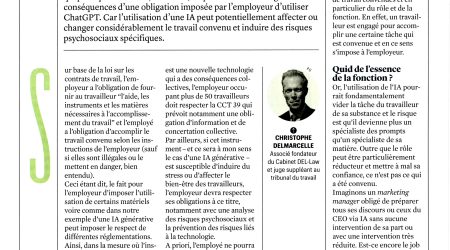When should I engage a bailiff?
Posted the 15 January 2014That an employee who is unfit for work still engages in professional activities can, in principle, constitute an urgent reason for dismissal, but everything depends on the circumstances. For instance, is the activity similar to the one performed for the employer?
The urgent reason can be proven by any legal means. For example, you can have the situation documented by a bailiff. A judicial officer (bailiff) can perform more than just statutory tasks; they are also authorized to "document purely material facts without providing any advice regarding the factual or legal consequences that may result from them."
Even when such documentation by a bailiff is presented to the court, the judge retains discretion. The circumstances under which the documentation was made must be accepted as authentic (the date, the bailiff's presence, the location, etc.), but these material findings are not considered an official report and do not carry the evidentiary weight of an authentic deed. The findings are regarded merely as information and presumptions. However, the judge will consider the credentials of the person who made the findings and will generally be inclined to trust them.
The law does not require the bailiff to disclose their identity. If they choose not to, this does not affect the validity of their findings. However, the bailiff must ensure that they do not violate the privacy of the person under investigation. They must conduct their observations in places accessible to the public and report on facts and statements that anyone could observe.
Apart from a bailiff, you could also consider hiring a private investigator for your situation. Since the profession has become strictly regulated, more and more courts recognize the evidentiary value of investigation reports, provided that the legal requirements are met and no violations of privacy are committed concerning the individuals involved in the investigation.
Related articles

Is an employer allowed to mandate the use of artificial intelligence tools by employees ? (Trends, 17-07-2025)

Caution if a former colleague opposed to your employer asks you to testify in their favor
